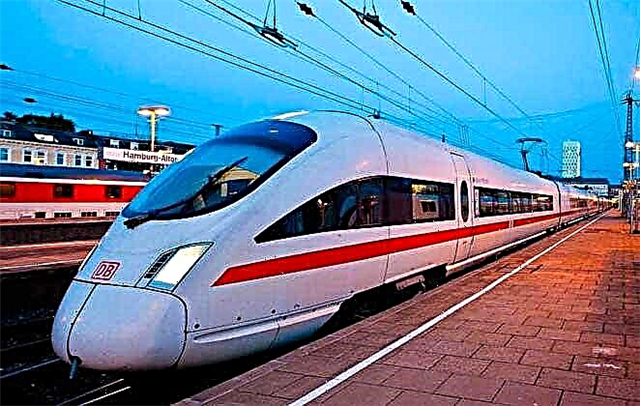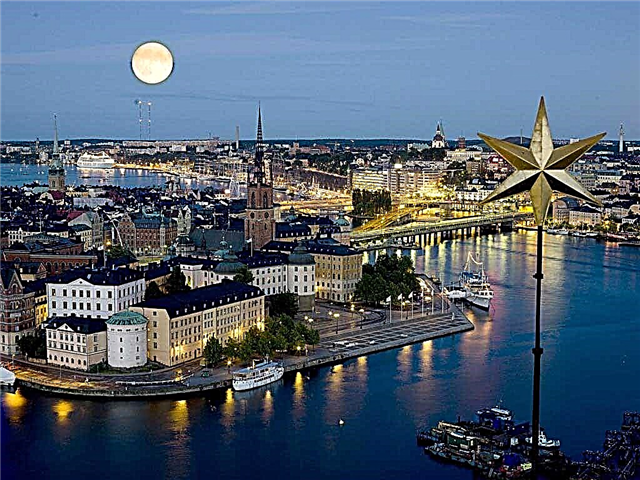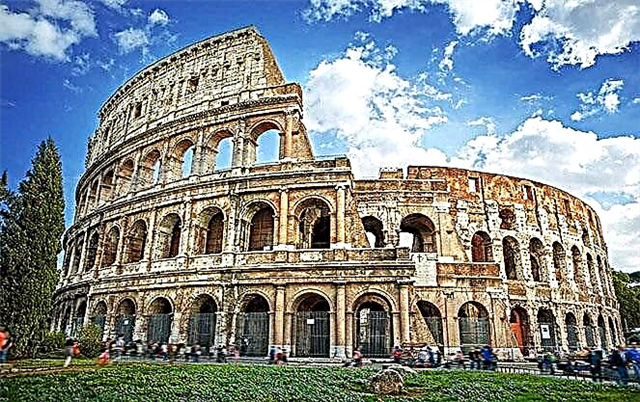A Europe with a soft policy towards migrants is becoming a welcome refuge for them. The main flow of refugees comes from Africa, South Asia, the Middle East - countries with armed conflicts, unstable political situation and economic problems. So, Italy is the first to meet refugees from North African countries. For some of the migrants, this is a transit country, but many remain as refugees in Italy.

Refugee Status Granting Standards
It will not be about tourists, not even just about migrants, but about people who left their homeland due to extraordinary circumstances associated with the threat of becoming a victim of political, religious, racial persecution of the person himself or his relatives. Well-founded fears of being persecuted upon return to their homeland are also grounds for obtaining refugee status.
The standards for granting refugee status in Italy are enshrined in Decree No. 251/2007, based on the provisions of EU Directive No. 2004/83 / EC of 29.04.2004 and other international legal documents.
According to the legislation of the Republic, the concept of a refugee is applied to persons (non-EU third country nationals or stateless persons) who have been granted political asylum in Italy.

Refugee status will not be granted to persons:
- recognized as refugees in another country;
- those who arrived from a European country (not their homeland) and did not apply for political asylum there;
- convicted in Italy for crimes (from theft to arms trafficking).
It is possible to count on obtaining international protection, and hence refugee status, only if certain conditions are met. One of the obligatory and compelling arguments in favor of the applicant is the existence of a refugee history, supported by official documents. These materials must confirm the accuracy of the facts described, the history of the persecution and appeals to law enforcement agencies, government agencies for help.
Rights of refugees with official status
Even the Geneva Convention relating to the Status of Refugees (1951) outlawed any discrimination against people seeking protection, so they are given equal rights with other foreigners:
- for a residence permit (residence permit) for a period of 5 years, after which you can apply for citizenship;
- for an identity card and travel document documento di viaggio, with which it is allowed to travel abroad within the period specified in the residence permit, but not more than 90 days in a row. Important: visiting the homeland is prohibited, otherwise the refugee status will be lost;
- for family reunification: spouse, minor children, single parents requiring care. Important: in this case, proof of income or indication of place of residence is not required;
- for free housing, which is provided by the Service for the Protection of Asylum Seekers (SPRAR) under the National Program, but this right is exercised only after contacting the Questura at the Emergency Reception Centers;
- for material support for 90 days in the form of an allowance of 17.5 euros per day, municipal social benefits for persons with disabilities, for pregnancy and childbirth. In addition, once a year, you can receive a one-time allowance in the amount of 2066 euros, but no more than 4 times in 6 years;
- for medical services provided on the basis of a free health card. It is issued to persons registered in the National Health System for the period of validity of the residence permit. Important: refugees are exempt from paying medical contributions for two months, after which they are considered able to work;
- for labor activity (hiring or self-employment);
- to receive education, including for minor children.
All of these rights are enshrined in Italian law.
The procedure for obtaining refugee status in Italy
Before applying for international protection and asylum, please make sure that your situation meets the requirements, because it is not easy to obtain refugee status in Italy.

This is a legal process that requires specialized knowledge and - ideally - language proficiency. Usually, Italian lawyers help in registration of the status, but their services are paid. If you are confident in your own abilities, you can carry out the procedure yourself.
What stages do you have to go through to obtain refugee status?
- Contacting the border police or the local questura office (immigration department of the police station) upon arrival in the country where you will need to hand over the national passport. Instead of the passport, a copy of the document is issued, on which there will be a management stamp, indicating the withdrawal of the original. In addition, another document (cedolino) will be issued, which will legalize the presence in the country. It will also indicate the date of the visit to the site to apply for asylum.
- Application submission and first interview. At the appointed time, you need to come to the station to write an application for a residence permit and fill out a questionnaire in which you will have to state your autobiography and indicate the facts that influenced the decision to leave your homeland. All information must be documented.
The questionnaire and autobiography can be written in your native language, they will be translated by in-house translators. The application indicates the address of residence for obtaining a temporary residence permit. In addition, you will need eight photos of 4x4 cm, the results of fingerprinting and medical examination. An initial interview will also be held here, following which a protocol will be drawn up and a so-called ricevuta di verbalizzazione will be issued - a copy of the application with a photo and the date of obtaining a residence permit. The term of a residence permit in Richevut is usually 3 months, but it is extended until a decision on the status is made.
- Consideration of the application. International protection is handled by one of seven territorial commissions (Commissione territoriale), which are located in Gorizia, Milan, Rome, Foggia, Siracusa, Crotone and Trapani. As a result of considering the application, the commission decides whether to invite the applicant for an interview or not.
- Interview with the territorial commission. The purpose of this event is to make sure that the facts stated in the statement are true, so much attention is paid to how the refugees behave. In addition to the applicant, the interview may be attended by an interpreter, a lawyer, a representative of the immigration service, who takes the minutes.
- Assigning a status or rejecting a request. In three days, the Central Commission, which is in Rome, will make the final decision. If the outcome is positive, the applicant receives a residence permit for a period of 5 years.
In more than 50% of cases, applicants receive refugee status.
Difficulties faced by migrants in obtaining refugee status
The situation of a migrant who has applied for refugee status is unenviable. The psychological stress is added to the difficulties of staying in a foreign country and the uncertainty of the situation.
Among the main difficulties is lack of knowledge of the language and legal aspects of the procedure for recognizing a migrant as a refugee. Another difficulty that migrants face is the collection of documentary grounds for obtaining refugee status.
The presence of papers confirming the data on the reasons for refugee stated in the application form is perhaps the most important criterion for obtaining status. You need to start collecting such evidence at home.They can be medical certificates of injuries, injuries, injuries received as a result of persecution, documents confirming the appeal to law enforcement and state authorities, reports on human rights violations, etc.

Another difficult moment is associated with the inability to legally find a job, therefore, during the entire period while the application is being considered, one must be content with the support provided by the state.
Finally, the refusal to grant the status. If, following the interview, the commission rejected the application, you can appeal through a lawyer to the Civil Court at the place of filing the application, of course, if it is possible to pay for his services, or use the free legal assistance (patrocinio gratuito) of a lawyer paid by the state.
In the absence of refugee status and in the event that it is impossible to return to their homeland, the Italian authorities may offer subsidiary or humanitarian assistance.
Refugee life in Italy before obtaining status
At least six months pass from the moment a migrant arrives in the country until an official response on the status is received, and in some cases much more. How are refugees all this time? Government programs support migrants, but in reality everything is not so simple.
- Housing. About 1,900 temporary structures have been opened for refugees. These are mainly converted private hotels, campings, tent camps in the outskirts. In most cases, buildings are in poor condition. Several people live in a room where the living and sanitary conditions are not very good.
- Material help. Housing, food, necessary household items are paid by the state from the 17.5 euros that are put on a person, and only 2.5 euros are given to the hands. Everything else is at your own expense.
- Job. Before receiving the status, migrants cannot officially work, which means they can earn temporary work, fraud or theft. During this period, the integration program is not yet in place, therefore, most of the time migrants are not busy with anything, they are on their own.
It is not surprising that such a state of affairs can create a tense atmosphere, contribute to the growth of crime in each individual city and throughout the country, and give rise to crisis situations, the same as the problems in Germany with migrants.
The situation of migrants changes after receiving refugee status. They receive certain rights and gradually begin to integrate into society.
Refugee situation: present and future
The procedure for obtaining refugee status in Italy is rather complicated and lengthy. About half of the requests are satisfied. Asylum seekers can expect to improve their quality of life. However, during this entire period, the foreigner is forced to stay idle and be content with the help of the state, which makes the situation of migrants difficult, and those around them, to some extent dangerous.
Italy, like the rest of Europe, is in a migration crisis, which forces the authorities to seek a solution to the problem. For example, the Italian authorities decided to close the borders and demonstrated the seriousness of their intentions when in June 2021 for several days they prohibited a ship carrying rescued refugees from Libya from entering their ports. The country's Interior Minister Matteo Salvini is going to toughen up the policy towards illegal refugees and speed up the legalization of arrivals.











